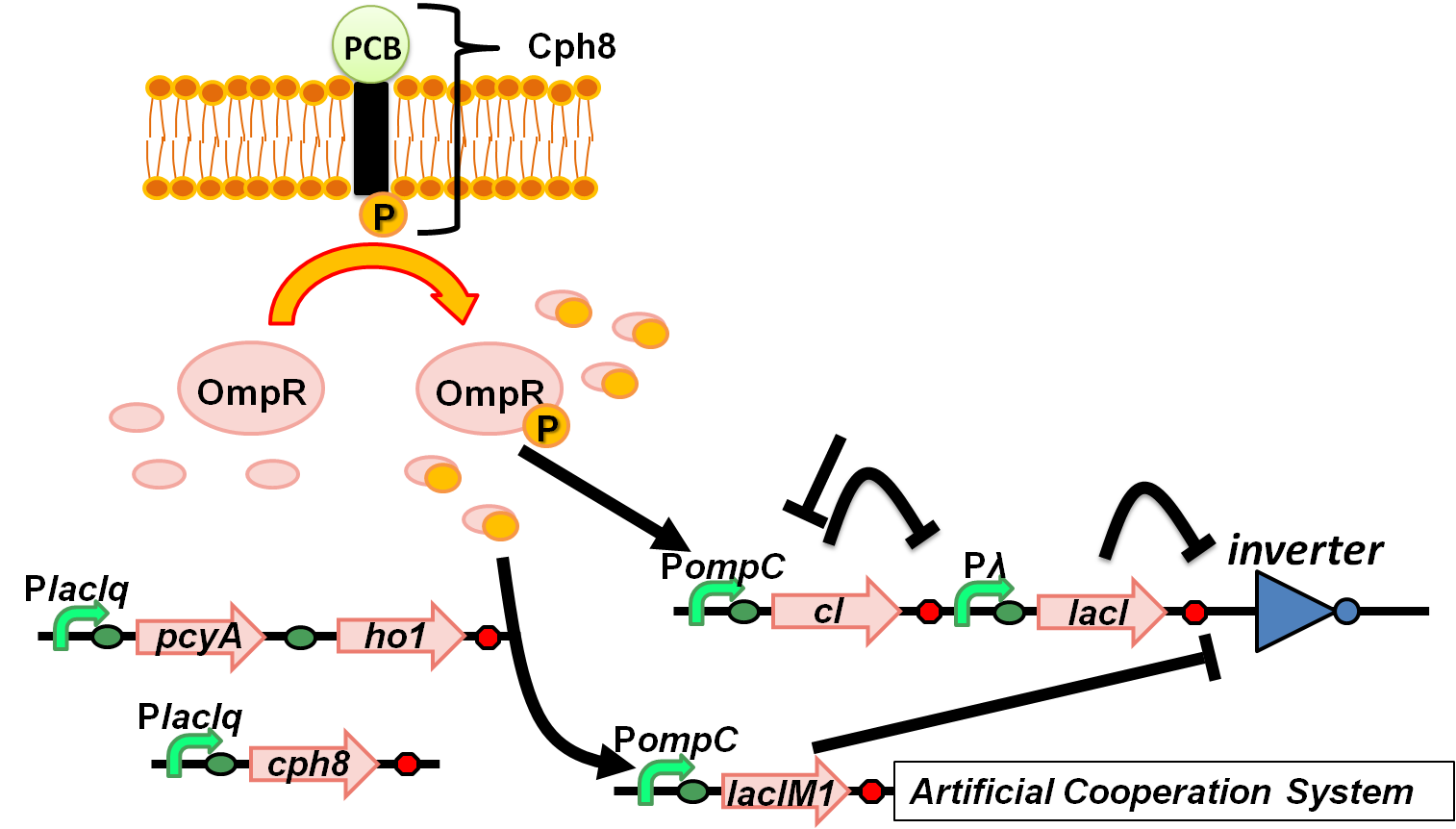Team:Tokyo Tech/Project/wolf coli
From 2010.igem.org
| Line 38: | Line 38: | ||
<div id="tf_SubWrapper"> | <div id="tf_SubWrapper"> | ||
| - | <font size="5"><b>4 | + | <font size="5"><b>4 Wolf coli. overview</b></font> |
| + | |||
| + | [[Image:Tokyotech_wolfcoli_ver3.png|left|thumb|200px|Figure3-1. Introduction of “Wolfcoli”]] | ||
| + | |||
| + | |||
| + | |||
| + | |||
| + | |||
| + | |||
| + | |||
| + | |||
| + | |||
| + | |||
| + | |||
| + | |||
| + | |||
| + | |||
| + | |||
| + | |||
| - | |||
Regulation of Artificial Cooperation System (ACS)lead to alternative behavioral of E. coli.Our team challenged to design “Wolfcoli”, an E coli. that its behavior changes due to the intensity of lightinspired by famous legend of wolfman. When there is intermediate light intensity, two cells doesn’t help each other at only full moon night . From these behaviors, we call this “Wolfcoli” (Fig. 3-1). | Regulation of Artificial Cooperation System (ACS)lead to alternative behavioral of E. coli.Our team challenged to design “Wolfcoli”, an E coli. that its behavior changes due to the intensity of lightinspired by famous legend of wolfman. When there is intermediate light intensity, two cells doesn’t help each other at only full moon night . From these behaviors, we call this “Wolfcoli” (Fig. 3-1). | ||
Revision as of 14:38, 27 October 2010
4 Wolf coli. overview
Regulation of Artificial Cooperation System (ACS)lead to alternative behavioral of E. coli.Our team challenged to design “Wolfcoli”, an E coli. that its behavior changes due to the intensity of lightinspired by famous legend of wolfman. When there is intermediate light intensity, two cells doesn’t help each other at only full moon night . From these behaviors, we call this “Wolfcoli” (Fig. 3-1).
In order to create the “Wolf coli.”, we introduced " red-light-dependent gene expression network"[1] and "band-detect network"[2] and combined these networks with the Artificial Cooperation System (Fig. 3-2). We conducted experiment on series of OmpC promoter (PompC), and LacIM1 which are crucial parts of our networks.
 "
"

